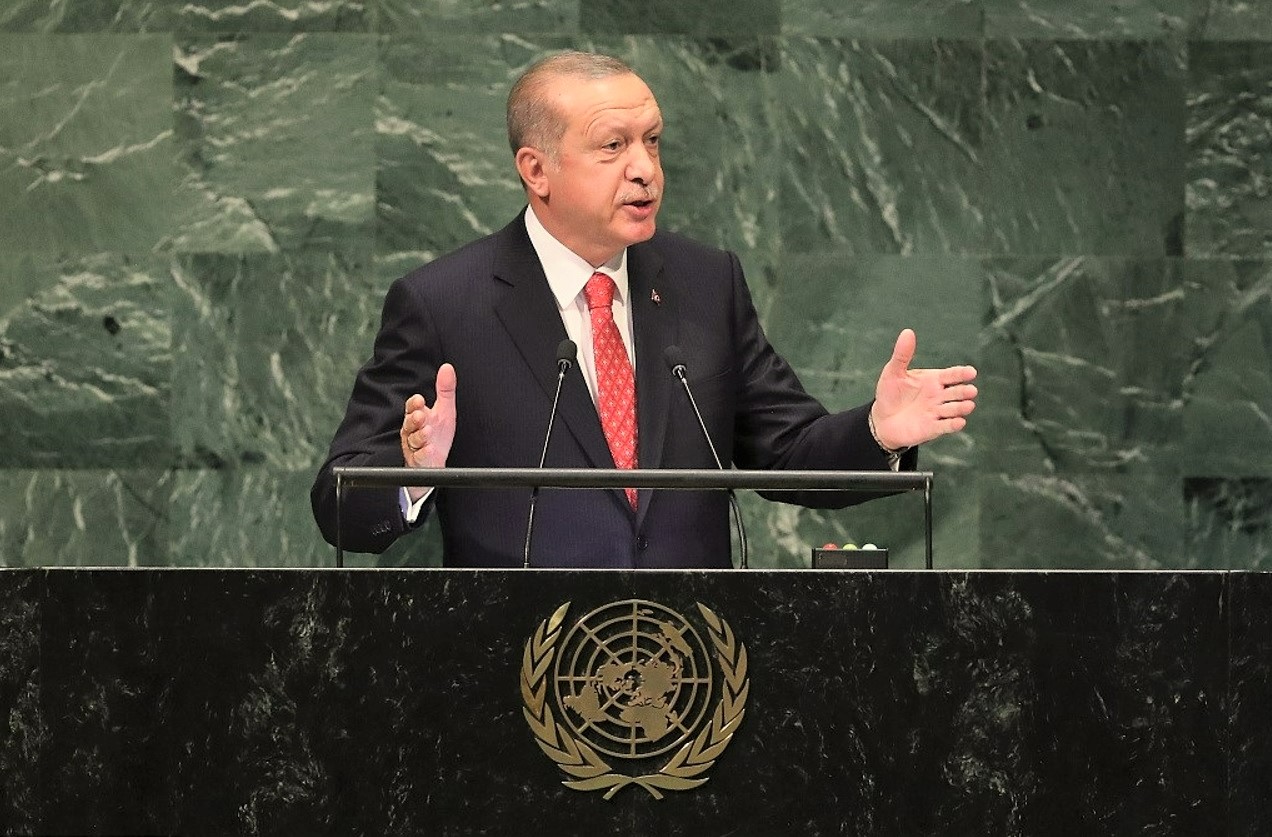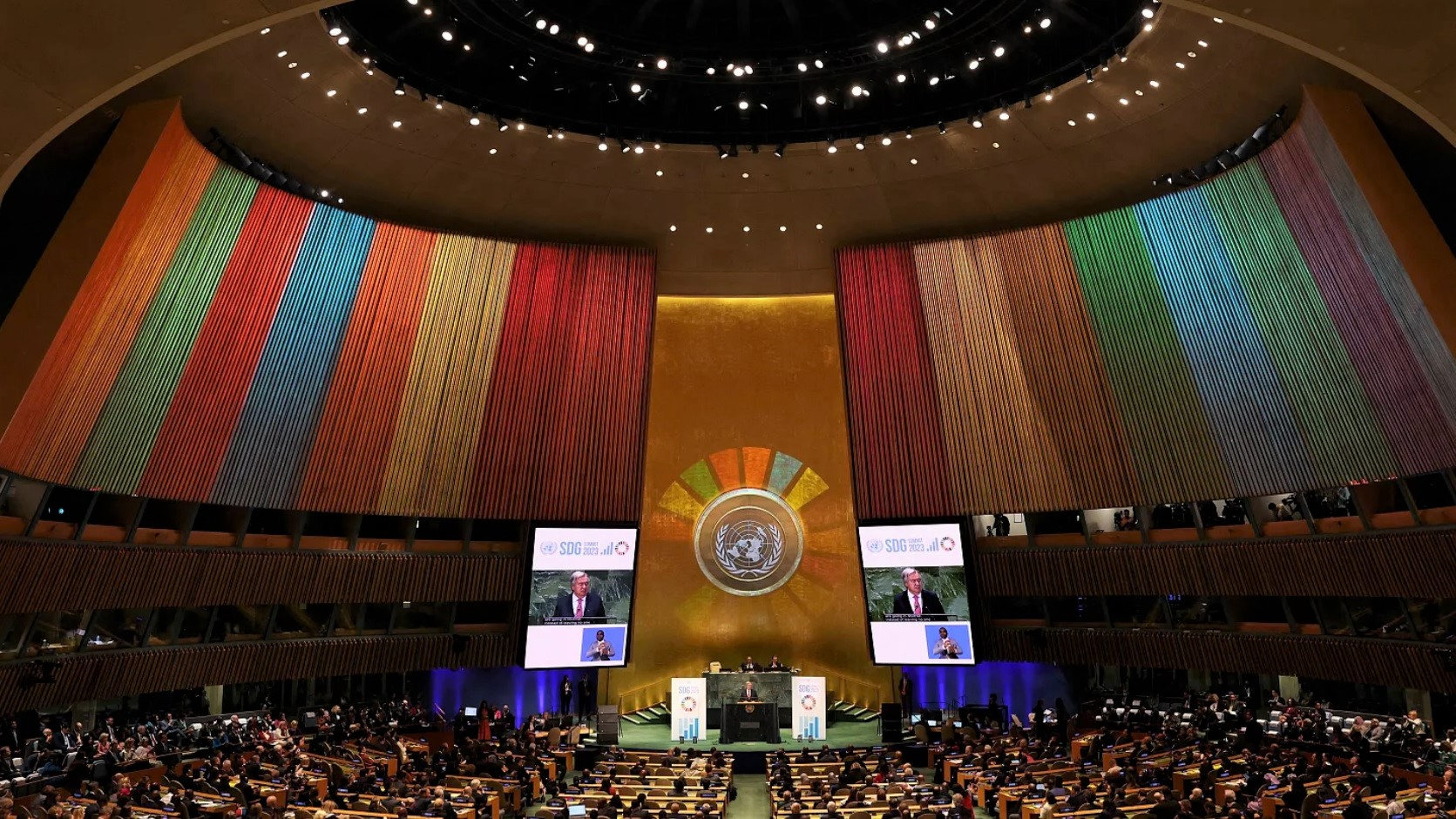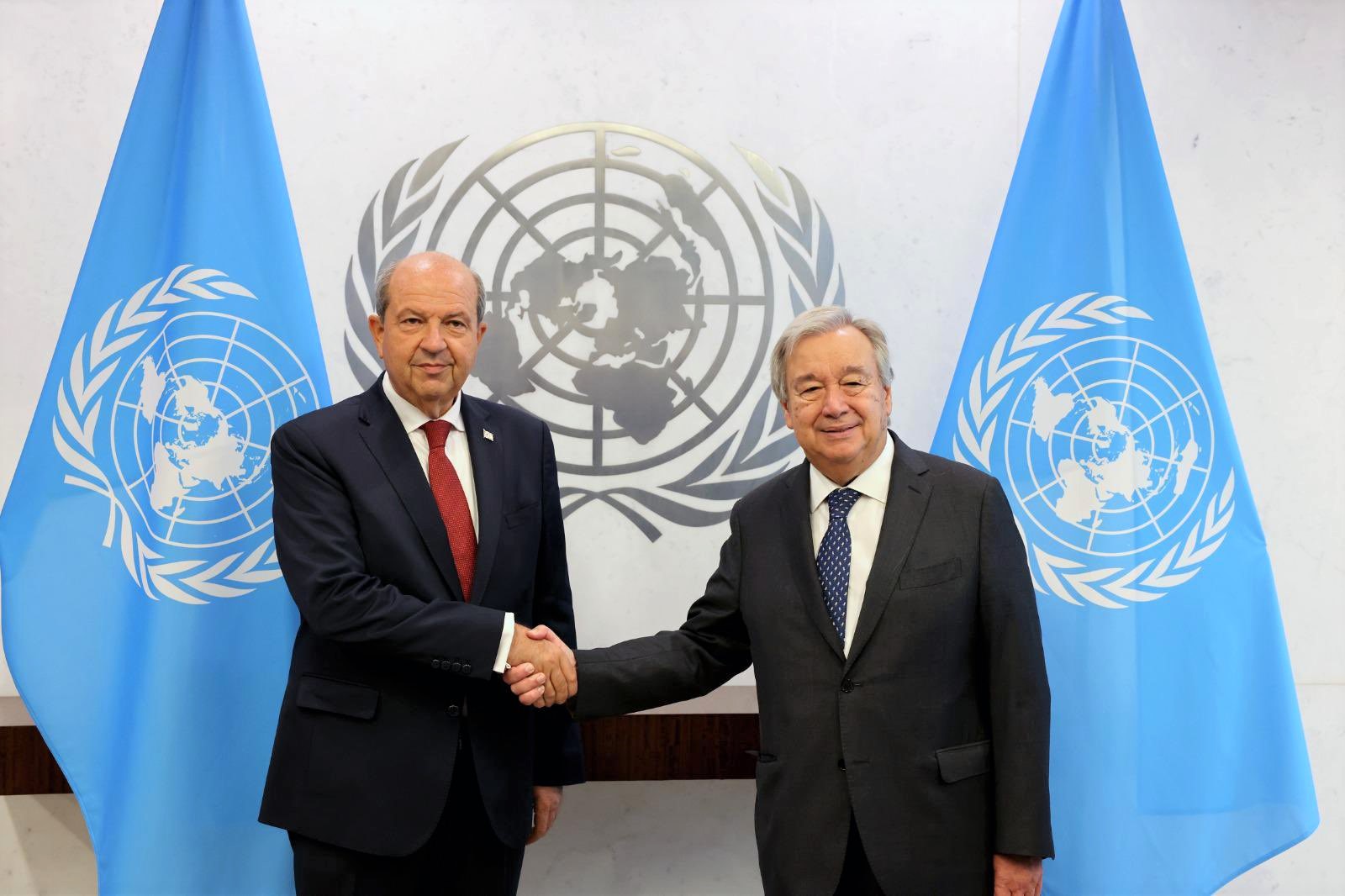
Near East University Faculty of Economics and Administrative Sciences International Relations Department Head Assoc. Prof. Dr. Sait Akşit commented on the contacts held by the Turkish and TRNC delegations in New York on the occasion of the 78th General Assembly of the United Nations (UN).
President of the Turkish Republic of Northern Cyprus Ersin Tatar and his accompanying delegation, who went to New York to hold contacts on the occasion of the 78th General Assembly of the United Nations (UN) held in the USA, returned home. President Tatar held a series of meetings in New York with many officials, especially UN Secretary-General Antonio Guterres, to announce the expectations and theses of the Turkish Cypriots to the world. The President of the Republic of Turkey, Recep Tayyip Erdoğan, in his speech at the UN General Assembly, called on the international community to recognize the TRNC by saying, “We invite the international community to recognize the independence of the TRNC and to establish diplomatic, political and economic ties with this country.” This was one of the moments that left a mark at the General Assembly.
Near East University Faculty of Economics and Administrative Sciences International Relations Department Head Assoc. Prof. Dr. Sait Akşit commented on the effects and possible consequences of the “Recognize the TRNC” call made by the President of the Republic of Turkey, Recep Tayyip Erdoğan, and the contacts made by the President Ersin Tatar, on the recognition process of the Turkish Republic of Northern Cyprus.

It is important to make Turkish Cypriots recognizable!
Assoc. Prof. Dr. Sait Akşit stated that the call for recognition of the TRNC in New York and the contacts made in this direction are not likely to create a “new initiative” in the short term. Akşit said “Nevertheless, the contacts made by the TRNC President Ersin Tatar and President Erdoğan’s reiteration of the call for recognition of the TRNC at the United Nations General Assembly are very important for the Turkish Cypriots to become strongly recognizable in the international public opinion.”
Assoc. Prof. Dr. Akşit said that the calls made by major actors, especially regarding the energy crisis in the Eastern Mediterranean, were directly directed to Turkey. Akşit reminded that Greek Cypriot Leader Nikos Hristodulidis addressed Turkey mostly when he called for dialogue and negotiation in his speech at the UN General Assembly. “This approach is a result of the effort to make Turkish Cypriots invisible. In this context, the renewed call for recognition is an important call, especially in terms of making Turkish Cypriots recognizable.”

All parties maintain their current lines!
Assoc. Prof. Dr. Akşit said that the Turkish Cypriot and Greek Cypriot sides have been staying on the same line for a long time and trying to explain their perspectives to the international community regarding the solution of the Cyprus problem. Akşit said that this situation was repeated at the 78th General Assembly of the United Nations (UN). “Greek Cypriot Leader Nikos Hristodulidis reiterated his demands for an initiative and the appointment of a special representative, while bringing up some of the conditions and negotiation demands that he had put at the forefront. The Turkish Cypriot side, in line with its own expectations, showed an approach based on accepting the existence of the TRNC,” saying Assoc. Prof. Dr. Akşit, also stated that Turkish President Recep Tayyip Erdoğan reiterated his call for the recognition of the TRNC and emphasized sovereign equality and equal international status.
Assoc. Prof. Dr. Akşit emphasized that in the Cyprus problem, both a federal solution and a two-state solution are still very distant possibilities. Akşit said, “Following the call for recognition made by the Turkish side, we see that the UN permanent representatives reiterated their position in favor of a solution to the Cyprus problem on the basis of UN parameters. Therefore, we are experiencing a cycle of repetitions in which all parties maintain their current lines.”
Assoc. Prof. Dr. Akşit stated that there was no “positive atmosphere” regarding the Cyprus problem during the meetings and said, “There was not a very positive atmosphere towards taking a step in the Cyprus problem, neither in the context of a federation solution nor in the context of advancing the recognition of the TRNC. The Cyprus issue currently appears as a comfortable conflict zone where neither side is harmed. In particular, the Turkish side’s emphasis on not starting negotiations without sovereign equality and equal international status, and its effort to continue this, has not been seen or emphasized so strongly in previous negotiations.”
Assoc. Prof. Dr. Akşit said that returning to the negotiation table regarding the Cyprus problem seems far from the agenda and said, “Turkish Cypriots and Greek Cypriots maintain their positions. Therefore, we see that neither side wants to make concessions in order to come together for negotiation.”

Reminding that there are major problems in the region that have been postponed, such as the Eastern Mediterranean crisis, Near East University Faculty of Economics and Administrative Sciences International Relations Department Head Assoc. Prof. Dr. Sait Akşit said, “Even if negotiations did not start, both parties should have taken steps towards a certain basis of cooperation. Only in this way could a positive atmosphere be experienced. There are references in Turkish President Recep Tayyip Erdoğan’s speech that he is open to cooperation, but there is no evidence of how all major actors can come together on this ground. This is one of the biggest problems. ln fact, cooperation on energy or the use of regional resources can be brought to the agenda before the Cyprus problem is resolved.”
The Turkish delegation had talks to improve relations
Recalling the separate meetings of Turkish Foreign Minister Hakan Fidan and TRNC President Ersin Tatar with UN Secretary-General Antonio Guterres at the 78th General Assembly of the United Nations, Assoc. Prof. Dr. Akşit said, “Although TRNC President Ersin Tatar is not keen on the appointment of the UN Representative, we see that Hakan Fidan has a more moderate approach to the issue. This may actually raise the question of whether there may be a new development regarding the shaping of Turkey’s foreign policy regarding the Cyprus issue.”
Stating that the meetings held by the Turkish and TRNC delegations included requests to take steps to overcome the current difficulties in some issues, Near East University Faculty of Economics and Administrative Sciences Department of International Relations Head Assoc. Prof. Dr. Sait Akşit said, “The Turkish Cypriot delegation’s meeting series included officials from Switzerland, Germany, France, the USA, the United Kingdom, Russia, the Organization of Islamic Cooperation and the Organization of Turkish States. Here, in addition to the current position on the Cyprus issue, there are initiatives to improve relations and cooperation in Cyprus. However, since not many details have been disclosed, we will see the repercussions of these talks over time.”